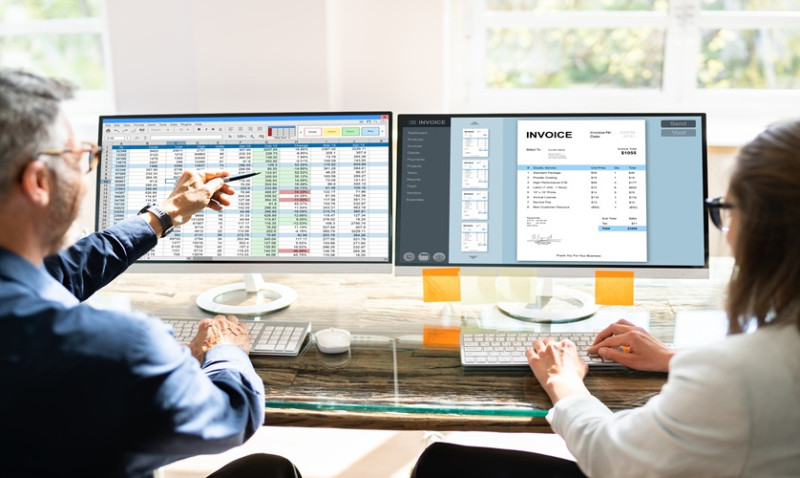
The accounting profession in the UK and beyond is on the edge of a significant shift. More accountants are leaving the field than entering, signalling a deep-rooted problem that stretches far beyond simple industry turnover. While this might not seem directly relevant to DIY enthusiasts, homeowners, or even interior designers at first glance, it’s important to understand how this professional decline could affect everyday economic and personal renovation decisions.
Accounting plays a foundational role in every sector—from home improvement retailers trying to manage soaring inventory costs to the new tradesperson launching a solo business and trying to balance their books. When fewer professionals are available to guide these financial journeys, the wider community, including redecorators and homeowners looking to manage budgets, may begin to feel the strain.
The Great Professional Exodus: What’s Behind It?
A significant number of experienced accountants in the UK are choosing early retirement or switching careers. Many cite long working hours, increased regulatory pressures, and a heavy workload—especially during the tax season. Others simply feel that the field no longer offers the career progression and job satisfaction it once promised.
Technical changes and evolving accounting rules have made it necessary for professionals to spend more time on compliance rather than on meaningful business strategy or client advisory roles. This shift in focus doesn't just affect the professionals—it directly affects small businesses trying to navigate new tax frameworks, including many in the trades and design industries.
Another common reason for the mass exit is the integration of automation and AI technology. While digital tools simplify bookkeeping and financial tracking for individuals and sole traders, they also reduce the demand for entry-level accountants. Ironically, the very technology that helps DIYers and small businesses streamline finance could be contributing to professional burnout and reduced job satisfaction among accountants.
The Shortage’s Ripple Effect on Small Businesses and Tradespeople
For many UK-based DIY enthusiasts, tradespeople, and home design professionals, having access to dependable accounting advice has long been an important support. Whether you're filing taxes as a self-employed painter-decorator or budgeting for a kitchen renovation, a good accountant saved time, money, and headaches.
But now, with fewer professionals taking up the mantle, small businesses are more likely to feel the heat. The shortage can lead to long delays in getting advice, higher fees for accounting services, and even difficulties securing funding—something especially challenging for contractors looking to invest in better tools or vehicle fleets.
A lack of tailored financial advice also makes it harder for professionals to understand key financial metrics such as overhead recovery rates, profit margins per project, or cash flow planning. This isn't just a headache—it can directly impact profitability and long-term business viability.
Even homeowners who are not running a business may feel small but significant impacts. Think of rebate claims for home energy efficiency upgrades or navigating VAT rules for major renovations. Poor financial advice could mean these opportunities are missed altogether.
The Next Generation Isn’t Interested: Why?
One of the biggest signals of challenge in the profession is the decreasing number of young professionals choosing accounting as a career. While accounting was once viewed as a stable and respectable path with great earning potential, that reputation seems to be waning among Gen Z and Millennials.
Many younger individuals are seeking careers that align with their values or offer greater flexibility, creativity, and a stronger work-life balance—attributes not typically associated with the traditional finance roles. Additionally, the path to becoming a certified accountant involves years of study, exams, and often unpaid internships or training contracts, which can be daunting in a high-cost-of-living economy.
This disinterest means fewer innovations from within the profession, and less diversity of thought or vision when it comes to solving real-world issues—everything from sustainable business accounting to purpose-driven entrepreneurship.
What Can DIYers and Tradespeople Do Amid This Shift?
Whether you're an architect leading a sustainable build or a homeowner measuring tiles for your next bathroom upgrade, keeping your finances in check is critical. With fewer accountants to rely on, this is the perfect time to embrace available digital tools.
There are a range of accessible accounting platforms designed with tradespeople and small businesses in mind. Tools like QuickBooks, Xero, and FreeAgent can manage everything from sending invoices to tracking mileage—even supporting VAT submissions.
For DIY-ers and home renovators, understanding basic personal finance—setting budgets, tracking expenses, using spreadsheets—can go a long way. Mastering these tools means you're less dependent on professionals and more confident in your decision-making processes.
Networking with peers can also offer insights. Local trade associations, design collectives, and builder groups often host events or online forums that include financial management tips or even accountant recommendations.
A Shift in Perspective: Could This Be an Opportunity?
Interestingly, the accounting exodus could spark a wave of opportunity. As the need for human insight in financial planning grows, niche financial consultants who specialise in trades, property, and home design may find a growing market.
This opens doors for innovative firms or individuals offering hybrid services—combining project budgeting with materials sourcing, or pairing tax planning with renovation loan consulting. Imagine working with someone who not only understands external wall insulation but can help you claim local council grants and manage your builder payment terms, all at once.
It also encourages tradespeople and designers to upskill. A bit of knowledge in accounting not only helps individuals survive the shortage—it can help them thrive. Understanding your business finances organically improves quoting accuracy, project profitability, and even client trust.
Conclusion: Reinventing the Role of Accounting in Everyday Life
With the shortage of accountants becoming a pressing issue, it's time for UK homeowners, designers, and tradespeople to take preparation into their own hands. Whether it's mastering budgeting tools, networking smarter, or considering financial management as an essential skill, stepping up can turn challenge into opportunity.
Accountants may be on the decline, but support for your finances doesn’t have to be. The more we understand the reasons behind this professional shift, the better we can adapt, evolve, and take control of our projects, budgets, and futures one smart decision at a time.





